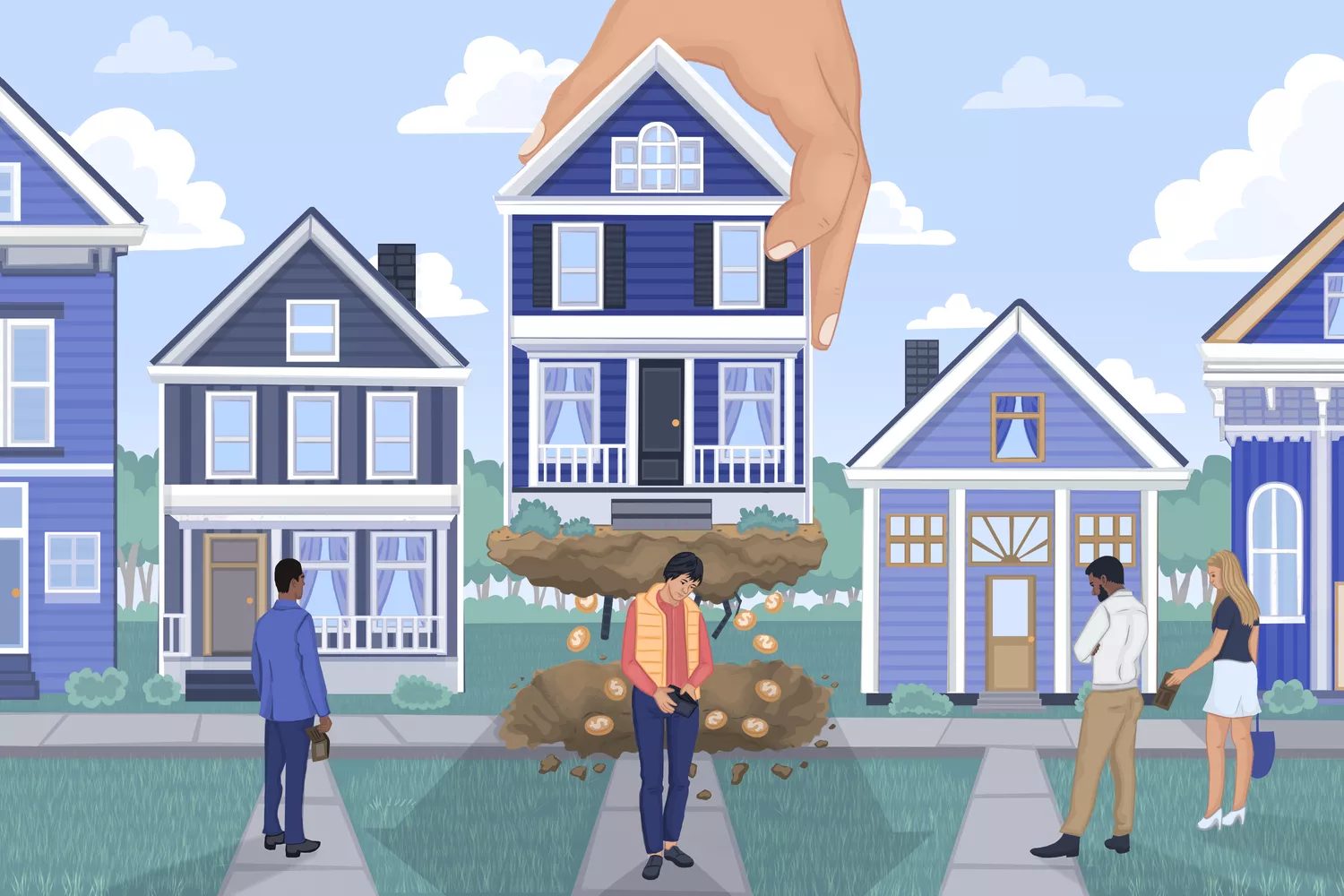
The housing shortage currently facing the United States has had a ripple effect on the entire economy, affecting employment, economic growth, wealth inequality, and inflation. The number of houses built in the United States is insufficient to meet demand, resulting in the slowest sales rate in modern history. According to a report by the American Association of Real Estate Agents, in the first 20 years of the 21st century, the number of new homes built in the United States was 5.5 million units less than actual demand. Even more severe is that high interest rate mortgage loans have made homeowners unwilling to sell their homes, missing out on the opportunity of low interest rates during the peak of the pandemic.
Firstly, for most households, housing costs are the largest single expenditure. This means that the official inflation rate used to measure the cost of living is highly sensitive to any changes in housing costs. Housing costs account for 45% of the consumer price index, which is the most widely watched inflation indicator. In fact, inflation measured by the Consumer Price Index is mainly due to rising rents, which is also one of the main reasons why the post pandemic inflation surge did not fall to the Federal Reserve's annual target of 2%. Regardless of whether household budgets are affected by changes in housing costs, rising inflation will affect the economy in various ways, such as pushing up the borrowing costs of various loans.
Secondly, the higher housing costs make it more difficult to change jobs. This means that it is difficult for people to engage in jobs they originally preferred, which also makes it more difficult for employers to find the workers they need. The latest report from the Federal Reserve Bank of Boston points out that companies in the Cape Cod area are facing difficulties in recruiting due to high housing costs that future employees cannot afford.
White House economists pointed out in a report on housing shortages that when there is a mismatch between jobs and workers, the overall productivity of the economy decreases. The strength of the labor market has always been a historical landmark of the US economy, including matching suitable labor with suitable industries. However, due to the current economic situation, people are less willing to relocate, which theoretically could weaken the benefits that the real estate market could have gained from labor mobility.
In addition, the economy also affects all activities triggered by house changes. For example, economists see the stagnation of the real estate market as one of the reasons for the decline in furniture and appliance sales. Not to mention, according to the analysis of the National Association of Residential Builders, residential construction itself is the main contributor to overall economic growth, accounting for 3% to 5% of GDP, while insufficient construction actually leads to losses in economic activities.
At the same time, the shortage of housing has also led to the exacerbation of wealth inequality. In a market with such a shortage of supply, becoming a homeowner is more difficult than ever, which means fewer people will be able to access these wealth creation opportunities. For most middle-class families, the value of a house is the largest component of their net assets. People who cannot afford housing due to high costs are excluded from important opportunities to accumulate wealth, which may widen the wealth gap.
In the United States, housing shortages do not have a single cause or solution. The White House report attributes some of the blame to local government policies. Homeowners often oppose the construction of new homes, fearing that it will reduce the value of their own homes, and use political influence to restrict the construction of new homes. The Biden administration has proposed using federal funds to encourage zoning reforms as part of a broader effort to promote affordable housing.
In recent years, with the bursting of the real estate foam, many American builders have closed down, and the construction industry has almost stagnated. The shortage of housing supply has been driving up housing prices in the United States. During the COVID-19, low interest mortgage loans pushed house prices to rise even more sharply, causing millions of potential buyers to lose their purchasing power due to price. If the US government does not take measures as soon as possible, it may fall into another real estate foam that is about to burst.

According to a recent report by Rich Asplund, a columnist for Barchart, the global sugar market is currently experiencing a complex and profound supply-demand game.
According to a recent report by Rich Asplund, a columnist f…
On January 13th local time, the three major US stock indice…
Recently, the 2026 edition of the MIT Technology Review lis…
On January 15, 2026, the US military announced the seizure …
At the 2026 J.P. Morgan Healthcare Conference, a joint anno…
For much of 2025, the market was rethinking whether the dol…